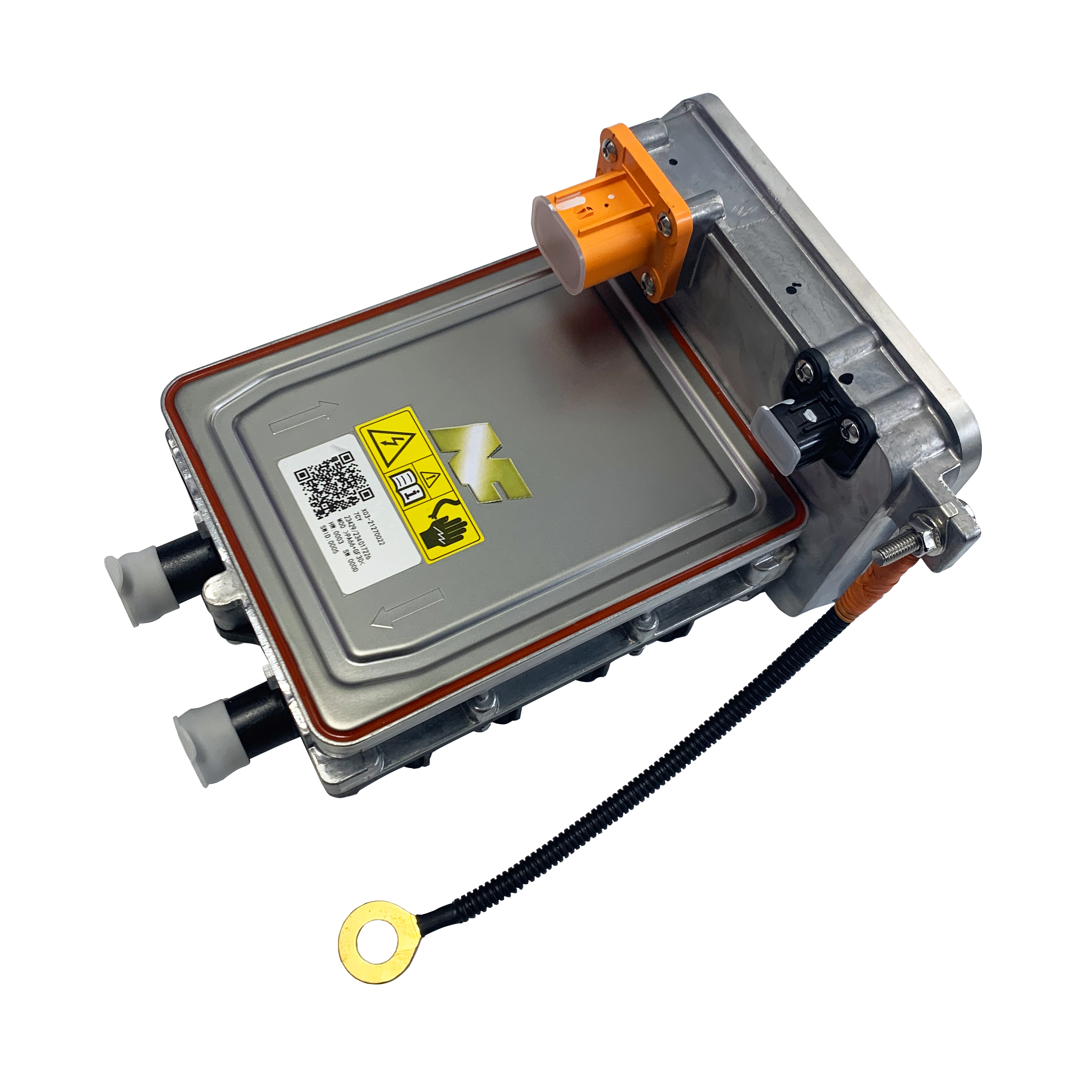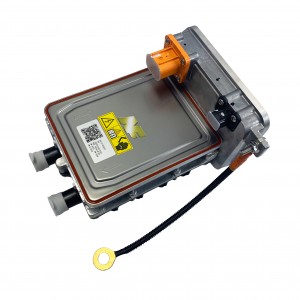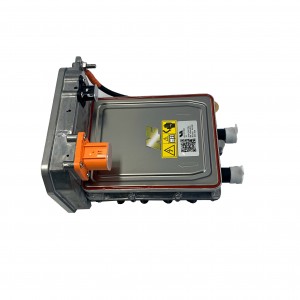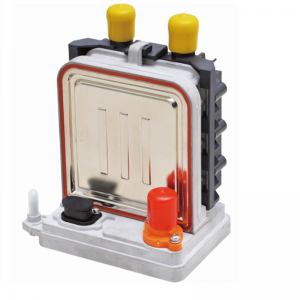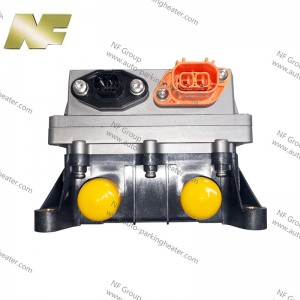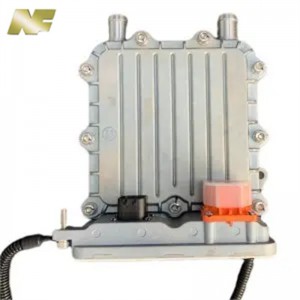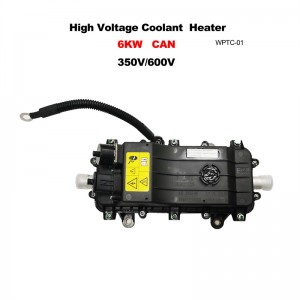10KW HVCH PTC water heater 350V with CAN
Product Description
Electric control parameters:
Low voltage side working voltage: 9~16V DC
High voltage side working voltage: 200 ~ 500VDC
Controller output power: 10kw (voltage 350 VDC, water temperature 0 ℃, flow rate 10L/ min )
Controller working environment temperature: -40℃~125℃
Communication method: CAN bus communication, communication rate 500K bps
As electric vehicles (EVs) continue to gain popularity, their technology has undergone major developments with a focus on improving efficiency and performance. One of the important advances is the implementation of electric vehicle coolant heaters, specially designed for high-voltage systems. In this blog, we take a deep dive into the world of electric vehicle coolant heaters and highlight their key benefits in optimizing electric vehicle performance.
Learn about electric vehicle coolant heaters:
The electric vehicle coolant heater is an integral part of the high voltage system of the electric vehicle. These innovative heating systems use the vehicle's coolant to regulate temperature, ensuring optimal operation of various key components, especially the battery pack. Electric vehicle coolant heaters and high-pressure coolant heaters work in harmony to maintain optimum temperatures and protect the overall performance of your electric vehicle.
Advantages of Electric Vehicle Coolant Heaters:
1. Battery life protection:
Proper temperature control is critical to maximizing the life of electric vehicle battery packs. Electric vehicle coolant heaters play a vital role in making this happen. By maintaining an ideal operating temperature, they help extend the life of the battery, ensuring its long-term efficiency and overall performance.
2. Prepare for cold weather:
One of the main challenges electric vehicle owners face in cold climates is the degradation of battery performance in extremely low temperatures. EV coolant heaters alleviate this problem by actively preheating the battery pack before even starting the vehicle. This warm-up minimizes the impact of cold weather on the EV's overall range, ensuring a more reliable and consistent driving experience.
3. Improve charging efficiency:
Efficient charging is crucial for EV owners, and using an EV coolant heater can significantly optimize this aspect. By warming the battery pack, the heater ensures it reaches an optimal temperature before charging, allowing for faster and more efficient energy transfer. As a result, this reduces charging time and improves overall convenience for EV owners.
4. Temperature control for optimum performance:
Electric vehicle coolant heaters help maintain a consistent and controlled temperature range of the vehicle's high voltage system. This control ensures that critical components and subsystems operate within required temperature limits, ultimately improving the overall performance and reliability of electric vehicles.
5. Regenerative braking optimization:
Regenerative braking is the function of electric vehicles to convert kinetic energy into electrical energy during deceleration. Electric vehicle coolant heaters play a vital role in optimizing the efficiency of regenerative braking by ensuring that the battery pack operates within an optimal temperature range. This feature enhances energy recovery during deceleration, helping to increase overall range and improve efficiency.
in conclusion:
Electric vehicle coolant heaters have become an essential part of optimizing the performance of high-voltage systems in electric vehicles. From extending battery life to enhancing cold weather performance and improving charging efficiency, these heaters offer EV owners numerous advantages. As the demand for EVs continues to grow, the development and integration of advanced EV coolant heaters will undoubtedly play a key role in shaping the future of EVs.
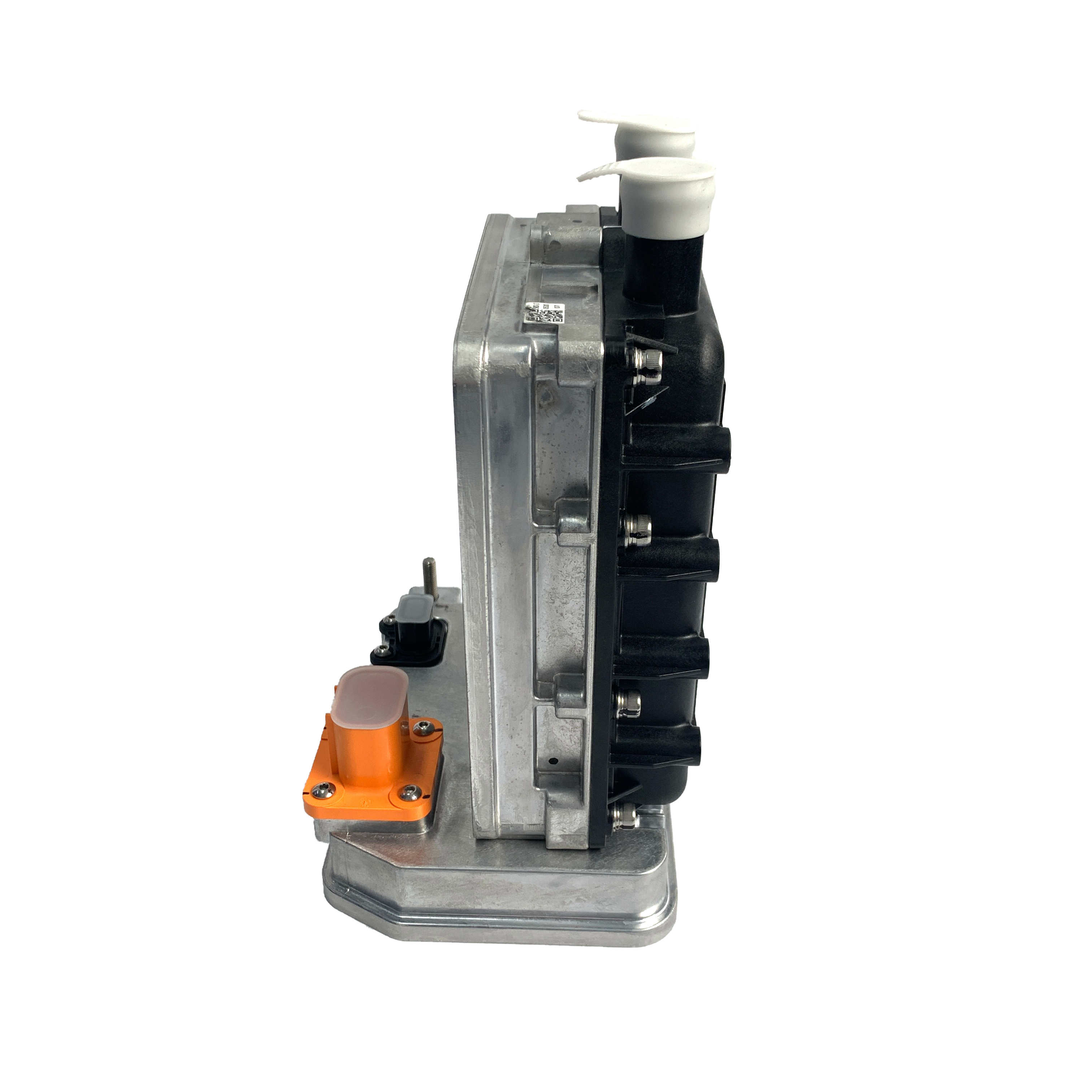
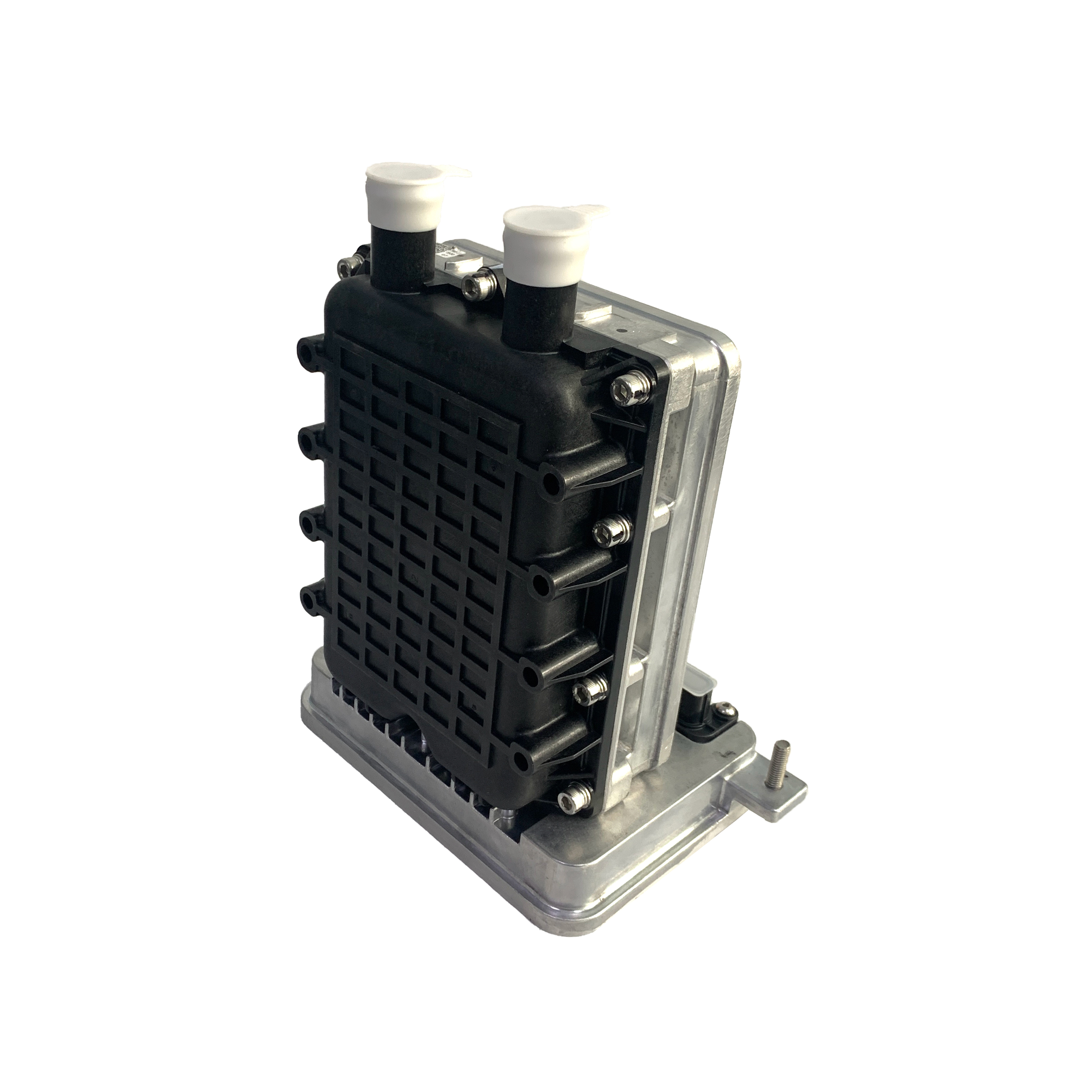
Product Parameter
|
Item |
Parameter |
Unit |
|
power |
10 KW (350VDC, 10L/min, 0℃) |
KW |
|
high pressure |
200~500 |
VDC |
|
low pressure |
9~16 |
VDC |
|
electric shock |
< 40 |
A |
|
Heating method |
PTC positive temperature coefficient thermistor |
\ |
|
control method |
CAN |
\ |
|
Electric strength |
2700VDC, no discharge breakdown phenomenon |
\ |
|
Insulation resistance |
1000VDC, >1 0 0MΩ |
\ |
|
IP level |
IP6K9K & IP67 |
\ |
|
storage temperature |
-40~125 |
℃ |
|
Use temperature |
-40~125 |
℃ |
|
coolant temperature |
-40~90 |
℃ |
|
Coolant |
50(water)+50(ethylene glycol) |
% |
|
weight |
≤2.8 |
kg |
|
EMC |
IS07637/IS011452/IS010605/CISPR25 |
|
|
Water chamber airtight |
≤ 1.8 ( 20℃, 250KPa ) |
mL/min |
|
control area airtight |
≤ 1 ( 20℃, -30KPa ) |
mL/min |
Advantages
The main performance features are as follows:
With compact structure and high power density, it can flexibly adapt to the installation space of the whole vehicle.
The use of plastic shell can realize the thermal isolation between the shell and the frame, so as to reduce the heat dissipation and improve the efficiency.
Redundant sealing design can improve the reliability of the system.
Application


Packing & Delivery

FAQ
1. What is an electric vehicle coolant heater?
An electric vehicle coolant heater is a device installed in an electric vehicle to provide heat to the coolant system. It helps maintain the optimum temperature for vehicle batteries and other electrical components, ensuring their efficient performance.
2. How does an electric vehicle coolant heater work?
Electric vehicle coolant heaters work by drawing power from the vehicle's battery pack to heat the coolant that circulates through the various components of the vehicle. This heated coolant helps keep batteries, electric motors, and other vital electrical systems at the desired temperature.
3. Why do you need an electric vehicle coolant heater?
Electric vehicle coolant heaters are necessary to ensure optimal performance and longevity of electric vehicle batteries and other electrical components. It helps maintain the ideal operating temperature range for these components, especially in cold weather conditions. By preheating the coolant, electric vehicle coolant heaters maximize their driving range without the need for additional heating energy from the battery.
4. What is a high pressure coolant heater?
A high-voltage coolant heater is a special type of electric vehicle coolant heater designed for electric vehicles that run on high-voltage battery systems. It uses a high-voltage power source to provide heat to the coolant system, ensuring efficient performance of the vehicle's electrical system, even in extreme weather conditions.
5. How is the high-pressure coolant heater different from ordinary electric vehicle coolant heaters?
The difference between high pressure coolant heaters and conventional EV coolant heaters is the electrical input. Conventional EV coolant heaters operate at low pressure, while high-pressure coolant heaters are designed to work with an EV's high-voltage battery pack system. This dedicated heater meets the higher power requirements of high-voltage systems and is optimized for the electrical demands of this type of vehicle.

